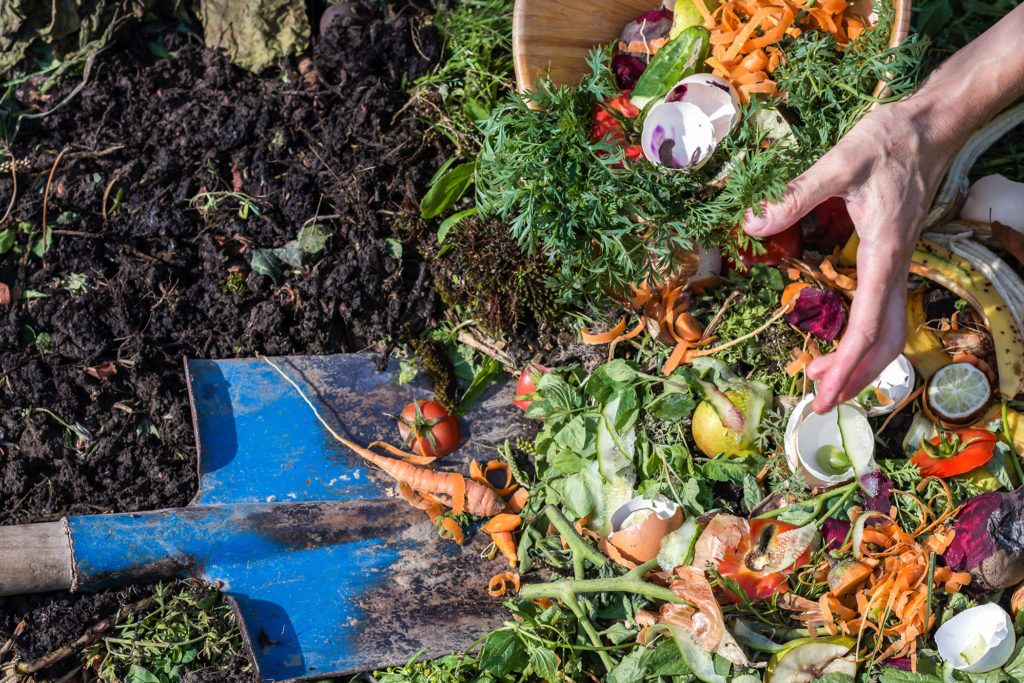Increasing circularity for organic waste to reduce greenhouse gas emissions

Walmart Foundation grant to UGA New Materials Institute will yield scalable strategies
Improving the circular systems related to collection, recovery and management of organic waste will help local communities lower greenhouse gas emissions and reduce the accumulation of food-contaminated packaging in their landfills. There is a growing need for new strategies to strengthen management in this waste category, as more localities ban food waste from landfills and/or extend producer responsibility for waste management to manufacturers, particularly for packaging.

Researchers at the University of Georgia’s New Materials Institute will help their hometown and five other U.S. communities improve organic-waste management practices through a 2-year project funded by a $1.2 million grant from the Walmart Foundation. The research will yield organic-waste management strategies that communities can adopt and scale, based on their population and resources. Organic waste includes food scraps and food-soiled packaging, as well as yard waste.
Diverting food waste from landfills to mitigate greenhouse gas emissions is a high priority for the U.S. government, but local communities tasked with managing this waste stream currently lack the infrastructure and strategies needed to make improvements. To elicit current practices and conditions, the team will first conduct surveys and interviews with stakeholders in waste management, restaurant and business communities, as well as residents from apartments and single-family homes. For granular solutions that can be modeled for a variety of community sizes, the team will partner with two towns in each of three population densities: 400,000 and up, about 100,000, and under 40,000.
Utilizing the Circularity Assessment Protocol (CAP), developed at the New Materials Institute, the team will gain insight into local tipping fees, the types of waste management technologies used in a community, their associated costs and their availability to consumers. The CAP will also yield data on the most commonly used products in communities, local recycling trends and other consumer behaviors related to waste management. This assessment helps identify what type of waste leaks into local environments and why, and facilitates development of strategies to minimize leakage.
“We will investigate the root causes of landfilled organics in these communities to identify the collection gaps. The data will also drive our design of organics-waste collection technologies to address the gaps we find and accelerate the diversion of this waste,” said Evan White, a co-principal investigator on the project and director of the Institute’s Bioseniatic Laboratory, which studies degradation in simulated environments.
The second part of their project will focus on deploying and testing these safe, sanitary organic-waste collection technologies—bins that vary in size, complexity and operation, based on local needs. The researchers will also conduct workshops to help educate people on composting and better waste-management practices.
In the U.S., more food waste is landfilled than any other material. It makes up more than 24% of the municipal solid waste stream and is the nation’s third-largest generator of methane gas, according to the U.S. Environmental Protection Agency. By diverting landfill-bound food waste to composting sites, individuals can curb their own carbon footprint.
Currently four states—Maine, Oregon, Massachusetts and California—have passed legislation aimed at diverting food waste from landfills in order to lower GHG emissions. Maine and Oregon passed extended producer responsibility laws for packaging in 2021, and at least six states are considering similar legislation for their 2022 sessions.
Other principal investigators on the project include Jenna Jambeck, the Georgia Athletic Association Distinguished Professor in Environmental Engineering and lead of the Circularity Informatics Lab in the New Materials Institute; Jason Locklin, director of the New Materials Institute, a Distinguished Faculty Scholar in the College of Engineering and professor of chemistry; and Branson W. Ritchie, a Distinguished Research Professor who is director of technology development and implementation for the institute and of the Infectious Diseases Laboratory.
Writer/Contact: Kat Yancey Gilmore, 706/542-6316, kygilmor@uga.edu
